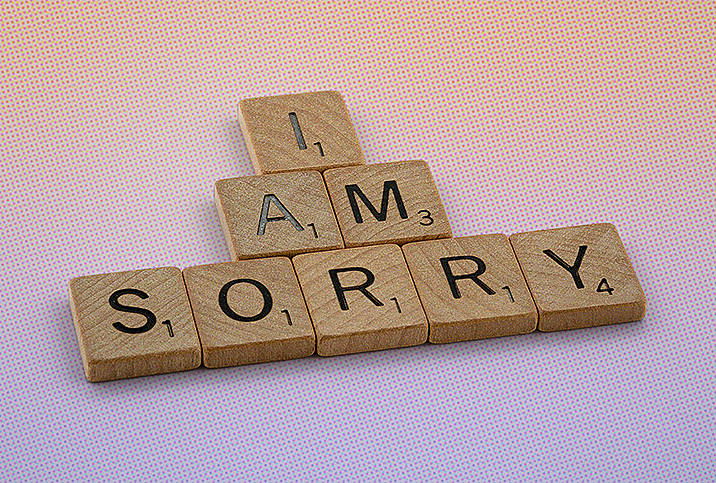How You Can Resolve Conflicts: The Scientific Approach

It's normal for couples in a healthy romantic relationship to have disagreements. But if your arguments start to display symptoms of criticism, contempt, defensiveness or stonewalling, you need to pay closer attention.
These four behaviors are found to be the most destructive and labeled as the Four Horsemen of relationship apocalypse by clinical psychologist John Gottman, Ph.D., who has studied more than 3,000 couples over two decades. Gottman has predicted with greater than 90 percent accuracy whether a couple is headed for a long-term, satisfying relationship or a breakup.
But if you are experiencing these behaviors, it doesn't mean that your relationship is definitely going to end badly. There are corrective methods that work—take it from me, as they directly helped my marriage.
1. Instead of criticizing, use a gentle start
Criticism often attacks a person's character, which might make the other party defensive and provoke a counterattack. Remind yourself that your partner is a loved one, not an enemy. You are on the same side. So instead of "you" statements, which can be accusatory, use "I" statements to express how you feel. For example, instead of asking, "Why do you always do this," you can say, "I feel sad whenever this happens. Can we please talk about how we can resolve this?"
The latter is a softer approach and focuses on how you can work things out together rather than putting the blame on one party. It can be tough to do this when either of you is angry or upset, so give yourselves time to calm down before starting this conversation.
2. Instead of showing contempt, show appreciation and respect
You may use it more than you think: Sarcasm, mockery, cynicism, eye-rolling and displays of hostile humor are instances of showing contempt.
Take this statement, for example: "Why aren't you able to figure it out? I've known how to do this since I was in high school!"
This superior tone conveys disgust and a position of being "better" than your partner. According to Gottman, contempt like this is the most destructive behavior of the Four Horsemen and the number-one predictor of divorce. That's because contempt is often a result of negative thoughts toward your partner that are built up over a long period of time. When these feelings are unresolved after a disagreement, we begin to feel that our partner "always" behaves in a certain way, making us increasingly unhappy. The danger here is how gradual the process can be. It often starts with small signs, such as eye-rolling or a sarcastic remark, which we might initially brush aside, but over time it can lead to a significant loss of respect toward the other party. In some relationships, it might even end in emotional abuse.
You can still turn things around, however, if both of you are willing to put in the effort.
Start with an immediate, short-term goal to avoid using "you" language, and instead use more "I" language to convey your needs and feelings. Over time, add the long-term goal of building a culture of fondness and admiration for each other. Reminisce about good times, but also make the effort to create present and future good times, too. Demonstrate small acts of appreciation toward your partner every day. Eventually you should be able to replace those subconscious negative feelings for your partner with positive ones.
3. Instead of defending your actions, take responsibility
Defensiveness is a natural form of self-protection that tends to pop up when we are being criticized. Defending yourself doesn't solve the problem, though. It merely shifts the blame to the other party:
Criticism: "Why are you always late?"
Defensiveness: "I was waiting for you to text me to confirm the meeting time! You texted me late, and you know I usually take time to get ready."
You can see how this conversation is quickly escalating, with both parties ready to fight.
The solution? Resist the urge to defend yourself and take responsibility for your role in the conflict. You can also give a suggestion on how both of you can work toward a compromise:
"I'm sorry I'm late. I took a while to get ready. Perhaps we can confirm the meeting time earlier next time?"
4. Instead of stonewalling, soothe yourself with a timeout
When emotionally overwhelmed in an argument, some people might start to withdraw from the conflict and stop responding to their partner. This is known as stonewalling.
There's no point in continuing the discussion at this stage because one party is already shutting down and disengaging, as they are unable to respond to the flood of emotions.
If you notice that either you or your partner is doing this, pause the discussion and call a timeout. For example, you can say something like, "I'm sorry, I'm feeling very overwhelmed at the moment. Can you give me half an hour and we can continue talking after that?"
Your body needs at least 20 minutes to calm down physiologically, and it's very important that you avoid indignant or victimizing thoughts at this time, such as, I don't want to deal with this anymore! or Why do they keep doing this to me? Such thoughts only continue to release stress hormones in your body.
Distract yourself with soothing and therapeutic activities, such as listening to music or getting some fresh air. You will have a more effective and respectful discussion after that, when you are calmer and more rational.
Be patient with yourselves, and continue to put in the effort
Learning how to communicate in an effective and positive way during a disagreement takes time. Be patient with yourselves, and don't be too hard on each other. If you know that both of you want to make it work and are putting in the effort to do so, that's what matters the most.


















